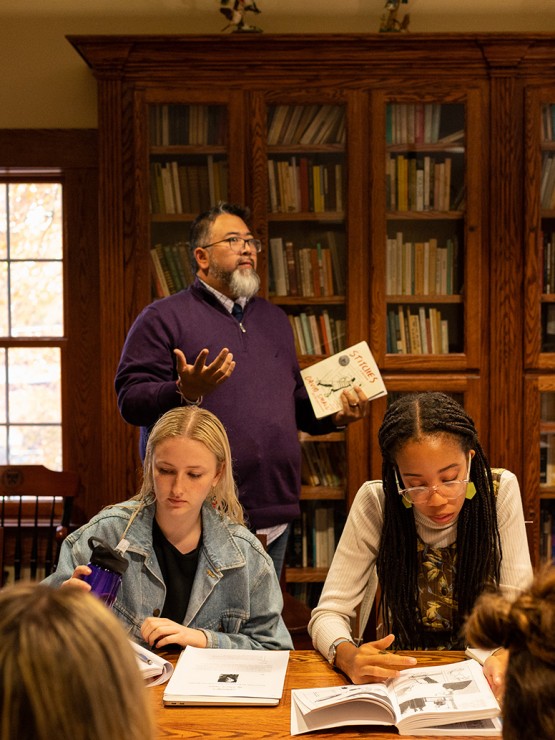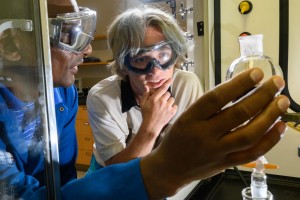No matter what you study at Kenyon, you’ll explore more than just the how of the subject, you’ll dig deep into the why. You’ll also grow invaluable skills as a writer. Whether it’s composing a critique of Chaucer or arguing the pros and cons of nuclear energy, you’ll learn how to put content in context and ground your writing in data.
Good writing is good thinking.
You don’t need to take a creative writing class to master the skill of writing. You’ll put words to ideas in your history seminar, in your biology lab and in your economics research.
Research opportunities begin in year one.
In fact, many Kenyon students pursue independent research with the help of faculty mentors, which often leads to getting published or presenting at conferences.
“Chatting after class with your professor is a spontaneous enjoyment. You don't know what is going to happen next, yet you're not nervous. Often, you end up leaving with a core memory.”

Featured Courses
Immunology
The world is teeming with microorganisms, many of which are capable of bringing us to our knees. Despite this looming devastation, most people manage to stay healthy. In this class, we embark on a journey through the immune system, studying the cellular and molecular mechanisms that protect against infection.
Gender Benders
You've most likely heard the planetary analogy that men are from Mars and women are from Venus. Critical gender, feminist and queer theorizations have, however, enabled us to look beyond such simplistic binaries. How can fiction re-envision categories of sexual difference?
The Art of Making Cartoons, Comics, Zines and Graphic Novels
Cartoon-based mediums have evolved to serious art forms that blend the shape and arc of classic literature with conventions of visual storytelling.This course provides a solid foundation of ideas and methods for drawing and writing cartoons, comics, zines and graphic novels.
Race, Education and Student Rebellion
Why is education at the center of struggles for racial justice? Do students of color today face obstacles comparable to those of the 1960s? This course examines the interplay of race and education in student protests in the U.S., including topics of anti-war, sexual assault and undocumented students.
We did more than perfect faculty advising—we invented it. In 1841, Kenyon was the first institution in the U.S. to introduce the model of professors serving as academic advisors.
-
10:1student to faculty ratio.
All courses are taught by professors—most hold a Ph.D. or terminal degree in their field.
-
50majors, minors and concentrations.
Approximately 20% of Kenyon students pursue a double or self-designed major.
-
30%of Kenyon students major in the sciences.
Kenyon students are often recognized with Goldwater Scholarships, one of the most prestigious scholarships in STEM.
-
92%of students find employment while at Kenyon or within 6 months of graduation.
Nearly 70% of students go on to grad school within 10 years of graduation.


